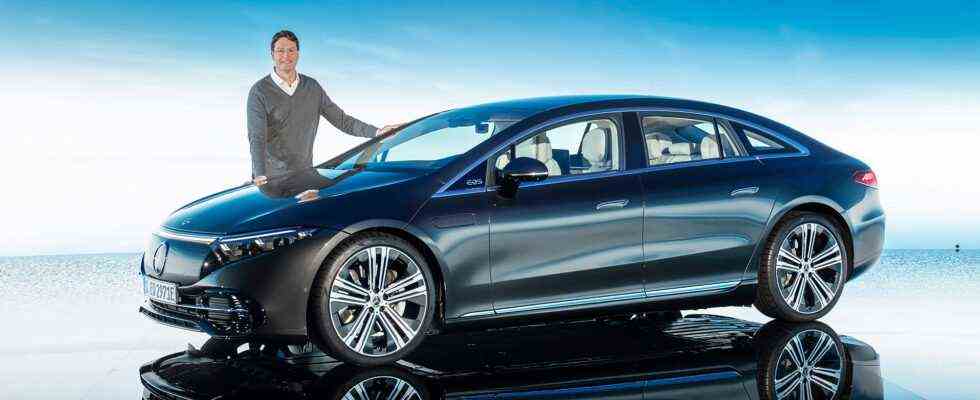Status: 09/24/2021 12:16 p.m.
The electrification of the Daimler fleet continues: Batteries are needed for this. That is why Mercedes-Benz is now investing in the Franco-German battery cell manufacturer ACC.
The car manufacturer Daimler joins the battery cell alliance of the large French corporations Stellantis and Totalenergies to supply its electric cars. The Mercedes-Benz passenger car division will become one-third equal shareholder in the Automotive Cells Company (ACC), the company announced. It is said that Mercedes-Benz is contributing to ACC with technology and production know-how. With the participation, Mercedes also receives two of the six seats on the supervisory board.
“Together with ACC we will develop and efficiently produce battery cells and modules in Europe, tailored to the specific requirements of Mercedes-Benz,” said Daimler boss Ola Källenius. Mercedes wants to invest a total of less than one billion euros, including a mid three-digit million amount in the coming year.
Billion business with batteries
The manufacture of battery cells is considered a key industry for electromobility. In addition, according to industry experts, battery and, above all, cell production is strategically important because, until now, European automobile manufacturers have primarily sourced their battery cells from Asia. This leads to a high level of dependency in a particularly sensitive and lucrative area.
In order to change that, Germany’s carmakers are now increasingly relying on their own battery production. With the new alliance, the corporations also want to respond to the increasing global demand for battery cells, which should generate billions in sales and a profitable business.
All-electric plans – depending on the market
Daimler had therefore announced that it would invest in battery cell plants in order to secure the supply of future electric cars with batteries. Since then, Källenius has been looking for partners for the project to set up a production capacity of more than 200 gigawatt hours (GWh) of battery cells per year by the end of the decade.
By 2030, Daimler wants to be able to only sell fully electric Mercedes-Benz cars where market conditions permit. In mathematical terms, 200 gigawatt hours of cell capacity would be sufficient for 2.5 million current Mercedes EQC models, each with 80 kilowatt hours (kWh) of electricity storage.
Hope for new jobs
“Through the partnership, we secure the scope of delivery, use economies of scale and can offer our customers superior battery technology,” explained Daimler boss Ola Källenius. From the middle of the decade, ACC will supply Mercedes-Benz with battery cells and modules from factories in Germany and France. The total investment in the joint venture is expected to amount to more than 7 billion euros. This includes both equity and debt capital as well as government subsidies, said Daimler CFO Harald Wilhelm.
Economics Minister Peter Altmaier from the CDU welcomed the move and spoke of the biggest breakthrough to date for a battery cell project. According to the Federal Ministry of Economics, the ACC consortium has been supported within the European Union and by France and Germany as part of a joint European project since 2018.
A new battery champion?
“We can already see that tens of thousands of jobs will be created in battery cell production in Germany alone over the next few years,” said Altmaier. The cooperation between Germany and France has the potential to create a new battery champion in Europe.
According to its own information, the Federal Ministry of Economics is funding battery projects in Germany with around 3 billion euros. In total, almost 60 companies from 12 EU countries are taking part in so-called IPCEI projects in Europe (“Important Project of Common European Interest”). In addition, there are several 100 companies from Europe that indirectly benefit from the IPCEI as suppliers, research institutes or partners.

